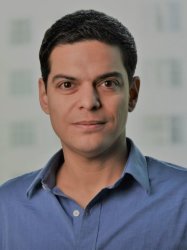Summary
Research interests
My research activity focuses on mineral resources, from its extraction, processing, and use, to the links between critical raw materials and other resources, such as energy and water. I am particularly interested in developing frameworks that incorporate systems thinking and sustainability principles into the management of mineral resources.
Mineral resources will play a fundamental role in the green energy transition, and in the Advanced Mineral Processing Research Group we aim to deliver solutions to pressing challenges in the sector, based on an understanding of fundamental aspects of mineral processing operations. We combine novel experimental techniques and numerical modelling as tools for process and equipment evaluation and design, and collaborate closely with industry to facilitate the implementation and increase the impact of our research.
As part of an Imperial-X initiative, the Resources Observatory, we aim to create a digital twin of the physical economy. We are developing tools to study material flows that can inform policy-making and business strategy in response to emerging issues and transitions in the supply chains of key resources.
FROTH FLOTATION
My work on froth flotation includes the modelling of complex phenomena in the pulp and froth zones (using the Finite Element Method and developing Population Balance modelling capabilities in Fluidity) and the use of experimental techniques to characterise these systems. I have led optimisation testwork at flotation plants worldwide to enhance metallurgical recovery and assess flotation cell design.
The study of two-phase foams and three-phase mineralised froths is a key component of my research. A recent Horizon2020 project, FineFuture, implemented and scaled up innovative technologies to enhance fine particle flotation and unlock fine grained deposits of critical raw materials. This project and other recent industry funded research have exploited Positron Emission Particle Tracking (PEPT) to better understand the behaviour of valuable minerals and gangue particles inside flotation cells, both to study the effect of retrofit designs and to inform the design of novel flotation machines.
THE MATERIAL-ENERGY NEXUS
Robust large scale energy and material supply analyses are needed to understand the raw materials requirements for the energy transition, but also the energy requirements associated to the extraction, processing and use of those materials. We are working on an energy supply model that account for a declining supply of fossil fuels and the "upfront" energy cost of renewable energy sources (solar photovoltaics, concentrated solar power, onshore/offshore wind). The model will help us understand the limitations of renewable energy resources growth regarding the climate and energy crises.
MODELLING METALLURGICAL VARIABILITY
I am interested in developing modelling tools for assessing the impact of metallurgical variability on mineral processing operations. This topic was a key component of the Horizon2020 project IMPaCT (€7 million funding), for which mineral processing flowsheets were developed with an emphasis on low impact solutions with regards to water, energy and environmental impact.
MINI-HYDROCYCLONES AND MULTICRITERIA DECISION ANALYSIS
I was a work package leader in PRODIAS ('Processing Diluted Aqueous Systems'), a €10 million project funded by the European Union with the aim of fostering competitiveness of the European process industry. The project focused on unlocking the potential of renewable based products made via industrial biotechnology by significantly decreasing production costs, increasing productivity and efficiency, lowering energy consumption, and accelerating process developments. I am particularly interested in the use of small hydrocyclones for dewatering and classification, as well as in the application of decision support techniques for the design of downstream processes and equipment selection.
Selected Publications
Journal Articles
Quintanilla P, Navia D, Neethling SJ, et al., 2023, Economic model predictive control for a rougher froth flotation cell using physics-based models, Minerals Engineering, Vol:196, ISSN:0892-6875, Pages:1-16
Zhang H, Brito-Parada PR, Neethling SJ, et al., 2022, Yield stress of foam flow in porous media: The effect of bubble trapping, Colloids and Surfaces A - Physicochemical and Engineering Aspects, Vol:655, ISSN:0927-7757, Pages:1-12
Sitorus F, Brito-Parada PR, 2022, The selection of renewable energy technologies using a hybrid subjective and objective multiple criteria decision making method, Expert Systems With Applications, Vol:206, ISSN:0957-4174, Pages:1-18
Mesa D, van Heerden M, Cole K, et al., 2022, Hydrodynamics in a three-phase flotation system - fluid following with a new hydrogel tracer for Positron Emission Particle Tracking (PEPT), Chemical Engineering Science, Vol:260, ISSN:0009-2509, Pages:1-11
Morley JD, Myers RJ, Plancherel Y, et al., 2022, A database for the stocks and flows of sand and gravel, Resources, Vol:11, ISSN:2079-9276, Pages:1-17
Marmiroli B, Rigamonti L, Brito-Parada PR, 2021, Life Cycle Assessment in mineral processing – a review of the role of flotation, International Journal of Life Cycle Assessment, Vol:27, ISSN:0948-3349, Pages:62-81
Mesa D, Cole K, van Heerden MR, et al., 2021, Hydrodynamic characterisation of flotation impeller designs using Positron Emission Particle Tracking (PEPT), Separation and Purification Technology, Vol:276, ISSN:0950-4214, Pages:1-19
Quintanilla P, Neethling SJ, Navia D, et al., 2021, A dynamic flotation model for predictive control incorporating froth physics. Part I: Model development, Minerals Engineering, Vol:173, ISSN:0892-6875, Pages:1-23
Beylot A, Muller S, Segura-Salazar J, et al., 2021, Switch on-switch off small-scale mining: Environmental performance in a life cycle perspective, Journal of Cleaner Production, Vol:312, ISSN:0959-6526
Vega-Garcia D, Brito Parada P, Cilliers JJ, 2018, Optimising small hydrocyclone design using 3D printing and CFD simulations, Chemical Engineering Journal, Vol:350, ISSN:1385-8947, Pages:653-659
Mackay I, Mendez E, Molina I, et al., 2018, Dynamic froth stability of copper flotation tailings, Minerals Engineering, Vol:124, ISSN:0892-6875, Pages:103-107
Brito Parada P, Neethling S, 2018, Predicting flotation behaviour – the interaction between froth stability and performance, Minerals Engineering, Vol:120, ISSN:0892-6875, Pages:60-65
Bhutani G, Brito Parada P, 2016, Analytical solution for a three-dimensional non-homogeneous bivariate population balance equation---a special case, International Journal of Multiphase Flow, Vol:89, ISSN:1879-3533, Pages:413-416

